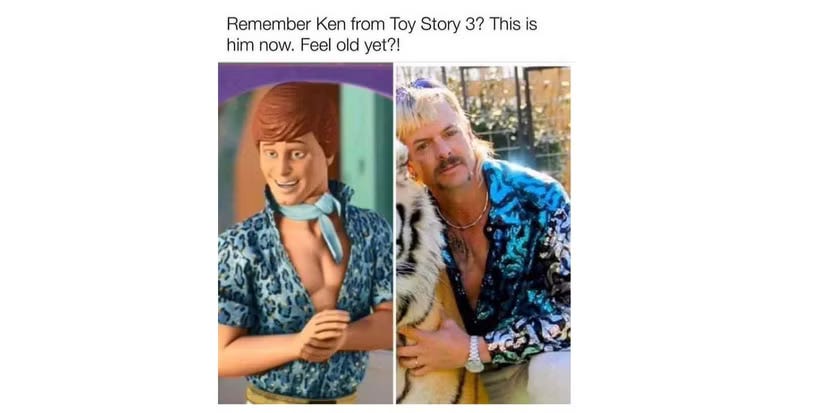Happy December, my dears. Last week we got our first snow in Massachusetts, an occasion my whole family still greets with giddy excitement. I haven’t sent a newsletter in a long, long while because I’ve been working nonstop on the film adaptation of The Bullet Swallower, which, as far as I know, is still full steam ahead. We turned in the 10th draft (or 11th? or 12th?? I’ve lost count) to the studio on Friday and I have a few weeks before the inevitable next round of notes come down the chute. Thanks to the incredible Screenwriting Life podcast hosted by Inside Out writer Meg LeFauve and Lorien McKenna, I have learned that it is normal for a screenplay to run 10 or even 20 drafts, so I figure I’m somewhere past the halfway mark. The opening scene of Toy Story 3 was apparently rewritten 60 times, so I’ve mentally prepared myself for anything.
I still haven’t quite found the right metaphor to describe the difference between novel writing and screenplay writing — is it like learning Spanish and then learning Portuguese? In that you think they’re closer than they actually are? Is it less like writing and more like architecture? Making sure the structure has a solid foundation, load-bearing walls, a tasteful amount of ornamentation?
The one I’ve settled on recently is that I feel like an interior designer — hired for my expertise and vision, but ultimately working with (for?) the client (and their money) to achieve a final product that’s satisfying to everyone. It’s so radically different to novel writing that I’m tempted to say having skills in one doesn’t mean beans to the other. Though there have been an elite few (Emma Donoghue, Cormac McCarthy, Larry McMurtry, Aldous Huxley among them) who were able to toggle between both.
The adaptation is the hardest thing I’ve ever done, professionally or otherwise. The process is: I turn in pages, the producers send me notes (things they don’t understand, questions about the rules of the story universe, suggested edits, etc.), I revise according to their notes, and then get more notes in response. And repeat and repeat and repeat and repeat. Apparently there’s no such thing as a perfect (or even finished) script. I heard that producer Jeffrey Katzenberg, on seeing Pretty Woman the day before its public release, apparently saw enough wrong with the film that he gave the writer 15 pages of notes.
This is no job for someone with thin skin or a fragile ego. I’ve had to remind myself on a daily basis that a) I asked for this and b) this is just what the job is, so if I don’t like it I can choose to never do it again.
And yet I do like it. And I plan to do it many more times again in the future (God willing). I guess I like suffering. Or maybe I’m just blinded by the bright lights of Hollywood. But I can accept the terms of the gig, as ego-bruising as they are.
And speaking of a bruised ego, I want to share two very unflattering stories about me, both because I have no filter and tend to overshare, and because I appreciate it when people publicly cop to their flaws and try to grow from them. None of us are perfect, we’re all going to miss the mark, but our mistakes can turn into something really meaningful if we use them to be better.
Confession #1: I am an inveterate gossip.
Literally my senior quote in my high school yearbook was, “If you can’t say something nice about someone, come sit by me.” I’ve gotten in trouble So. Many. Times. for gossiping that you’d think I would have learned my lesson by now. And I have tried to be better. I don’t gossip in my professional circles because I don’t want to start trouble, and because I don’t want to limit my career or get a reputation for being a crappy person. So I keep my trap shut and pour all of my observations and judgements and hearsay into my fiction writing (heavily, HEAVILY disguised of course).
So since I don’t allow myself to gossip (much) about other writers, that means I keep my gossip relegated to friends, neighbors, family members, or observations about celebrities and public figures (ask me about the Karen Read trial if you want to get sucked into an hour of conspiracy theories and stuff I overheard at Pilates).
I recently put my foot so far into my mouth at a party that I’m pretty sure my toes were poking out of my ears. I related a piece of gossip about someone without knowing that person was within earshot and when I realized my mistake, dear reader, please know that I stood there and watched my soul fly right out of my body.
Obviously I apologized profusely and with much colorful language directed at myself. I even sent the offended party an email the next day reiterating my apology, which was graciously accepted, and everything is now water under the bridge. But I still feel like an absolute jackass, and I am very tired of my dumb mouth still getting me in trouble, even at 42 years old.
Why are we compelled to badmouth other people? For one thing, I think it cements in-group/out-group status. If I make a disparaging remark about X, I mark myself as not-X, as well as everyone who hears my remark. We now share a secret — that we think poorly of X — thus creating a bond between us predicated on excluding X. Gossip and shit-talking are also human nature. It’s a part of human nature we can transcend of course, but a lot of us seem hard-wired to want to spread information tinged with our (often shitty) opinions.
Judaism has a lot to say about gossiping. Lashon hara — literally, evil speech or evil tongue — is a very serious sin. Serious in that, once out, words can’t be put back in someone’s mouth, and serious in that the person committing lashon hara also causes the listener to sin, since they’ve now heard the gossip and can’t un-hear it. Literally every Saturday we say a prayer in Temple that begs God to “guard my tongue from evil.”
(I will add though that gossip can be beneficial sometimes. Whisper networks have protected women from sexual predators in the workplace. I even heard novelist Angie Cruz say at a lecture once that “chisme (gossip) is care.” If you think of a community of immigrants living in one little pocket of a strange new city, gossip is how you pass critical information. It’s how you avoid cops, keep your kids out of trouble, help your neighbor who’s being beaten by her husband. But I’m not talking about this positive form of chisme — I just wanted to acknowledge that it exists.)
I recently heard someone say this about lashon hara: How long does it take to build a house? Like a year? And how long does it take to tear down a house? Like ten minutes with the right equipment? It’s easier to destroy than build up. If positive speech builds people up, then negative speech tears them down. And I don’t want to be responsible for tearing people down, especially with how much negativity there is in the world already.
Confession #2: I can hold a grudge.
I’m not special in this regard. A lot of people hold grudges. But unless the grudge is based on something serious, like your best friend sleeping with your fiancee, or your dumbass cousin forgetting to feed your cat while you were out of town and causing the poor thing to claw its way to freedom through an air vent and disappear into the woods (I swear this never happened to me!), then you can probably let it go. Life is short. People screw up. Forgiveness is a gift you give yourself.
Seven years ago I got into a disagreement with a good friend. It seemed really major at the time, and we didn’t speak afterwards. For seven years! That’s one-sixth of my life! I knew I was going to see her at an event in November, and I was really worried because I imagined things were going to be super awkward between us. I assumed she hated me, and had been bad-mouthing me to everyone she knew for the last 7 years — an assumption entirely rooted in my own shame over our disagreement rather than anything to do with her.
The argument started over a misunderstanding, and was exacerbated by my own inability to deal well with conflict. I don’t do conflict.
I will twist myself up into a pretzel to avoid conflict. I always have. It’s crazy that at one point I was seriously considering a career in law, lol.
So in the run-up to the party, as I worried more and more about how I would deal with this uncomfortable situation, I went back over the details of the argument and realized that 1) not only was I just as much at fault as she was, but 2) I’d acted like an entire dickhead. I’d been sitting there for 7 years believing that I had a right to my grudge, when I most certainly did not, and had caused myself and my friend a lot of pain and trouble in the process.
We saw each other at the event, and after a little bit of uncomfortable chatting and catch-up, I screwed up my courage and pulled her aside and apologized. And she was so kind and gracious, and said she missed being friends, and we made up! After all those years we had a really great time hanging out, just like old times. Suddenly the argument felt so foolish, so self-created, so unnecessary.
Shame is a really easy emotion to fall back on. I feel shame for so many stupid things I’ve said in the past, so many times when I could have been better but wasn’t. But shame isn’t a particularly helpful emotion because it focuses solely on you and doesn’t extend outward into the world. And shame is often coupled with embarrassment, so instead of prodding you to ask for forgiveness and make amends, it actually encourages you to withdraw and hide.
This is one of the reasons my friend and I didn’t speak for 7 years — because after I got over my anger, I was ashamed for how I’d behaved, but couldn’t get over my embarrassment and therefore make amends. If we hadn’t found ourselves at the same event last month, who knows how long I would have gone before apologizing??
There’s a big difference between shame and regret. Regret acknowledges: I made a mistake. Shame is internalized as: I AM a mistake. One encourages action, one encourages hiding. And how can we ever grow and become better people if we run and hide every time we make a mistake?
I’ve been called out publicly on more than one occasion when I’ve screwed up, and, without getting too woo-woo, I’ve learned to recognize these people as angels in the world.
Seriously, what better gift can we get than someone looking out for us and forcing us into difficult periods of growth and maturity? Yeah it’s uncomfortable, but it’s the only way to be better, and the only way to make our shitty behavior mean anything.
So I’ll end on a positive note: I wish for all of you that you never screw up. But when you inevitably do, I hope that someone kindly pulls you aside and lets you know. And I wish for all of you that when your screw ups are pointed out, that you can move from shame into regret, from feeling into action, from tearing down into building up.
In case you missed it:
I was on New Hampshire Public Radio’s Check This Out with Rachel Barenbaum
Thanks everyone who voted for The Bullet Swallower in Goodreads’ Choice Awards!
I’ve been telling people for years that I am the voice of a generation and MSNBC finally listened when they featured me on their documentary My Generation, as a representative of the (geriatric) Millennials (I come in at about 1 hour 26 minutes)
The Bullet Swallower was spotted in the background of episode 2 of Nobody Wants This, Netflix’s smash comedy hit starring Kristen Bell and Adam Brody
I have a short story in 2024’s Short Story Advent Calendar, still available for purchase
The Bullet Swallower was named a Best Book of 2024 by NPR, CrimeReads, Washington Independent Review of Books, and others. Thank you for all the love!
And I am still booking editing clients — I can read a full fiction manuscript, a short story, or even a query letter. Email author@elizabethgonzalezjames.com for more info.
Good night and God bless,
Elizabeth










Life lessons - tough but necessary for survival!
Joan Didion also worked on screenplays- another to add to the list!